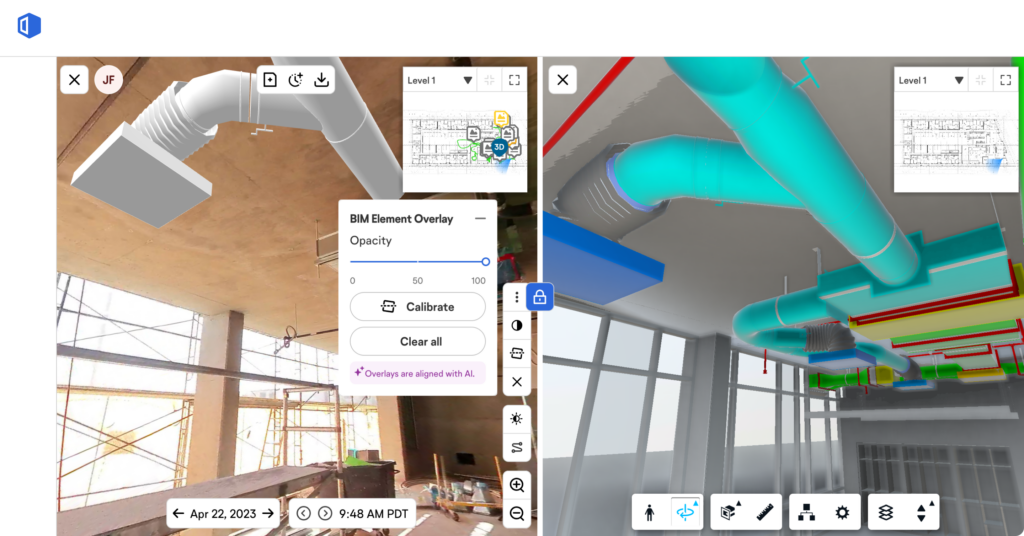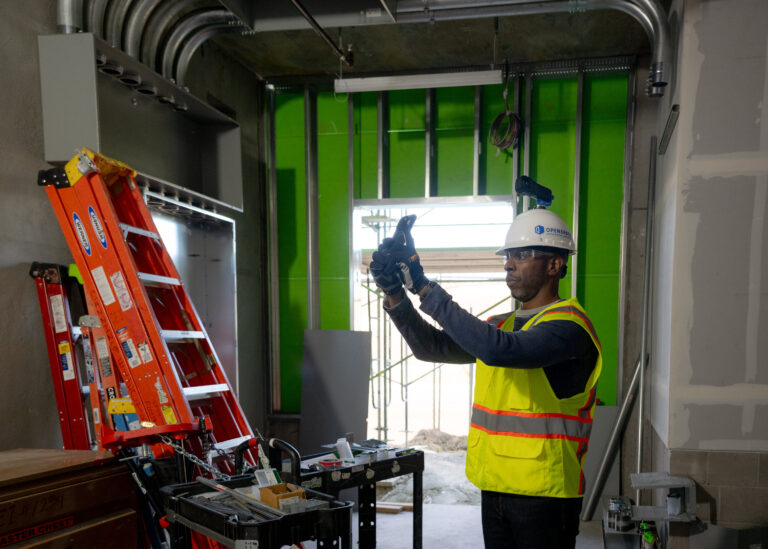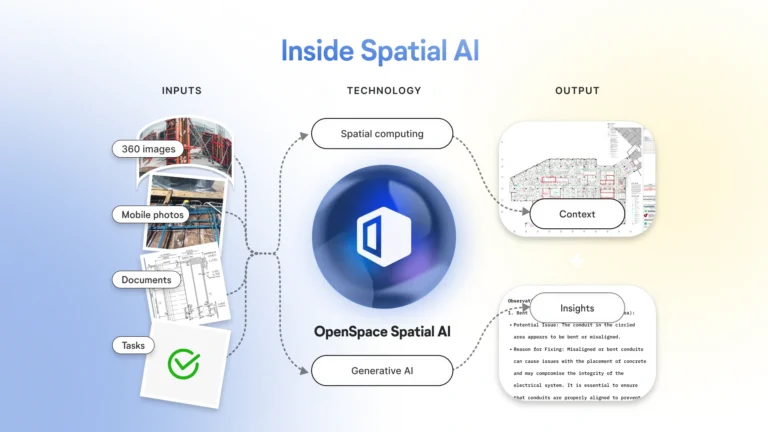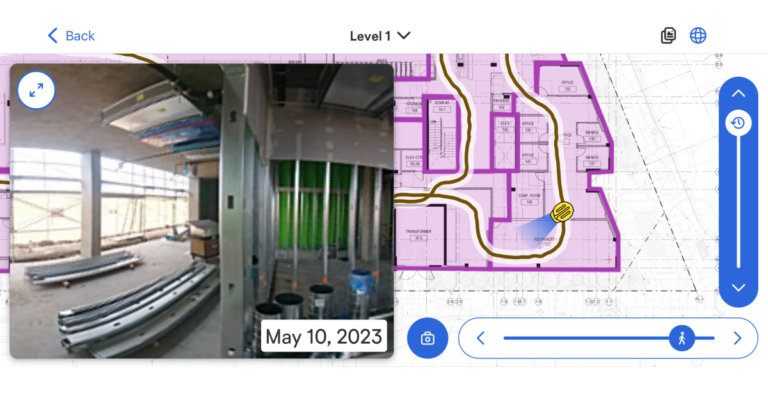The future of construction: AI-driven technologies leading the way
September 4, 2024

In an era where the pace of innovation accelerates by the day, construction technologies are now keeping pace, preparing a new chapter for an industry eager for transformation. The integration of artificial intelligence (AI) in construction not only marks a pivotal shift towards more efficient, safer, and cost-effective project management, but also redefines what is possible in the realm of Building Information Modeling (BIM), risk mitigation, and overall process optimization. As construction professionals and technology adopters navigate this evolving landscape, the importance of staying abreast of these advancements cannot be overstated. They not only promise to enhance the quality and speed of construction projects but also positively impact the industry’s labor shortage, underscoring the critical role of technology in the construction industry.
AI-driven technologies are reshaping the future of construction, from transforming traditional methods to drastically improving workforce efficiency. And as more and more data is captured, the potential of artificial intelligence in construction to utilize that information for forecasting trends and uncovering new opportunities for innovation and efficiency increases exponentially. AI and construction technology together are building the foundation of tomorrow’s construction industry, leading the way towards a more efficient, safe, and sustainable future.
Impact of AI on Workforce Efficiency
Artificial Intelligence (AI) is revolutionizing the construction industry by enhancing workforce efficiency through skill enhancements, task automation, and increased job site productivity. These advancements are not only optimizing the current workflows but are also setting a new standard for future operations.
Job Site Productivity
AI’s role in enhancing job site productivity cannot be overstated. By optimizing the allocation of labor and materials, AI can help to ensure that construction tasks are scheduled more efficiently, leading to cost reductions and shorter project timelines. Additionally, AI-enhanced tools like cameras and sensors can document the quality of work on site, promptly identifying and alerting teams to any defects or issues that need attention. This proactive approach prevents potential delays and maintains the integrity of the construction process.
Moreover, AI’s predictive capabilities are crucial for effective project management. By analyzing historical data and current conditions, AI systems forecast potential challenges and provide actionable insights, enabling better planning and decision-making. This not only ensures smoother operations but also contributes to the overall success and profitability of construction projects.
The bottom line is that integration of AI into the construction industry is proving to be a game-changer. By enhancing individual skills, automating routine tasks, and improving job site productivity, AI is not only addressing immediate challenges but also paving the way for a more efficient and innovative future in construction.
Task Automation
The automation of repetitive and time-consuming tasks is one of the most impactful aspects of AI in construction. AI-driven technologies, such as machine learning algorithms and natural language processing, are being employed to streamline processes like clash detection/prevention, project scheduling and resource allocation. These tools automate the extraction and analysis of data from construction documents, significantly reducing the time required for these activities compared to traditional methods. With the addition of AI-powered tools to assist in more labor-intensive processes like site inspections, timelines are not only sped up, but the likelihood of human error is also reduced.
Skill Enhancements
We’re also seeing a rise in AI-driven platforms used for the purposes of skill development by providing personalized learning experiences. By processing data sets, AI enables the formulation of tailored training programs that cater specifically to the needs of individual workers, thereby enhancing their capabilities and performance. For instance, the integration of microlearning techniques, which have been shown to increase learning effectiveness by 60%, leverages AI to deliver concise, targeted content that improves skill acquisition and retention.
Advanced Data Security in AI Systems
Data Analytics
Data analytics plays a crucial role in advanced data security within AI systems. By leveraging predictive analytics, construction firms can foresee potential security threats and devise preventive measures. For instance, predictive analytics can identify when specific structural elements might fail, allowing timely reinforcement to prevent accidents. Furthermore, data analytics supports effective resource allocation, which not only optimizes project costs but also minimizes environmental impact. This analytical approach is pivotal in project planning, significantly enhancing decision-making accuracy and efficiency .
Cybersecurity Measures
The construction industry faces unique cybersecurity challenges, from common cyberattacks to niche risks that can infiltrate every aspect of a construction enterprise. To combat these threats, extensive measures are implemented, including multi-factor authentication, robust employee training, and stringent data breach prevention strategies. Additionally, the adoption of cyber-physical systems (CPS) enhances the management of connected construction facilities, integrating rigorous digital security measures to boost resilience and minimize disruptions. These comprehensive cybersecurity measures are critical for protecting sensitive data and maintaining uninterrupted operations in the construction sector.
Forecasting the Future with AI
Predictive Analysis
Predictive analysis in construction leverages historical data and advanced analytics to forecast future outcomes and trends, significantly enhancing decision-making processes. By utilizing predictive models that incorporate statistical modeling and machine learning, construction professionals can anticipate challenges, optimize resources, and mitigate risks effectively. These tools enable more accurate budgeting and realistic project timelines, improving overall project efficiency and reducing potential cost overruns .
Market Trends
The AI in Construction market is experiencing robust growth, with projections indicating a rise from USD 3.21 billion in 2023 to USD 11.85 billion by 2029, reflecting a compound annual growth rate (CAGR) of 24.31%. North America, particularly the United States, remains at the forefront of this expansion, driven by significant technological advancements and a strong infrastructure development sector. This region’s focus on integrating AI into various construction processes, from project planning to operational management, underscores its role as a leader in the global market .
Future AI-driven Technologies
AI-driven technologies are continuously evolving, with new applications emerging across the construction industry. Future technologies include the use of Artificial Neural Networks for predicting cost overruns and the adoption of reinforcement learning techniques that optimize project planning through trial and error. Additionally, AI-driven tools are enhancing building performance by optimizing energy use and improving indoor air quality through advanced data analysis. The integration of AI in pre-design stages, such as feasibility studies and risk analysis, further illustrates its expanding role in early project planning and development.
These advancements are set to revolutionize the construction industry by improving efficiency, reducing costs, and enhancing construction performance outcomes, establishing AI as an integral part of future construction processes.
As we venture further into a future where the blueprint of construction meets cutting-edge AI-driven technologies, we can see the prospects of reduced costs, expedited project timelines, and a marked improvement in construction quality. The implications of these advancements extend beyond the immediate gains in efficiency and profitability, hinting at a more resilient, adaptable, and innovation-driven industry. With AI’s predictive prowess and its role in refining workforce skills, the construction landscape is being remodeled into one that is not only more efficient but also increasingly attuned to the demands of sustainability and advanced project management. This journey, illuminated by AI, promises a built environment that is constructed not just for today, but with an eye firmly on the future.
FAQs
-
What role will AI play in the future of the construction industry?
AI is poised to significantly enhance productivity and efficiency across global construction sites. Through machine learning algorithms, virtual construction management software can efficiently plan project schedules, minimizing potential delays.
-
How will emerging technologies influence construction in the future?
Emerging technologies enable contractors and project managers to make more timely and informed decisions by providing real-time data on costs and labor. Intelligent modeling allows for adjustments to building models on-the-fly, helping to assess the financial and labor implications of changes.
-
What are the future prospects for AI across various industries?
AI is expected to become increasingly integral to various sectors, including healthcare, banking, and transportation, as technology advances. This growth in AI-driven automation will transform the job market, creating new roles and requiring new skills.
-
How is AI expected to impact construction and engineering?
AI, particularly through machine learning, plays a crucial role in construction and engineering by using statistical methods to analyze data. This analysis helps identify patterns and provide insights, assisting firms in better risk assessment and project planning.


